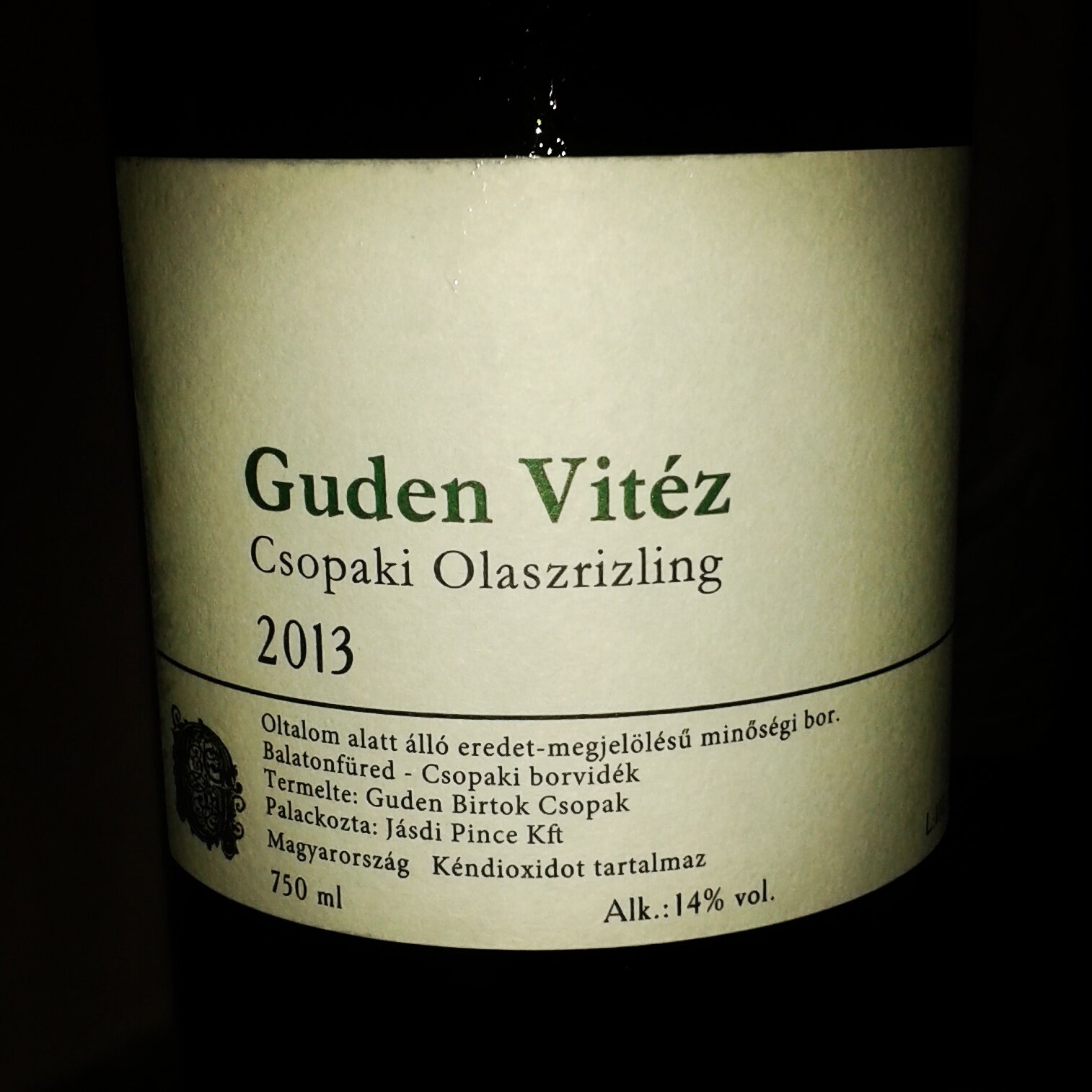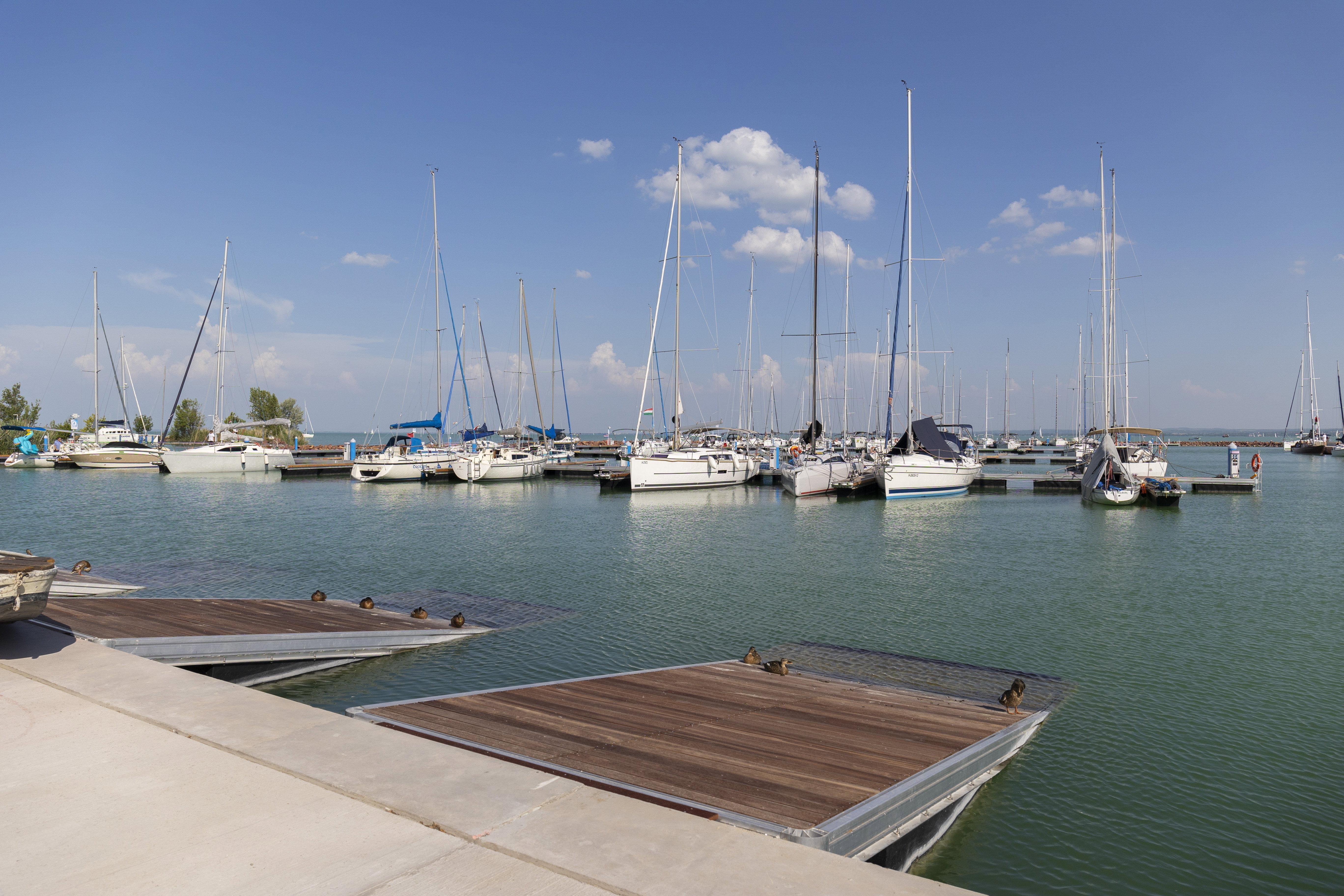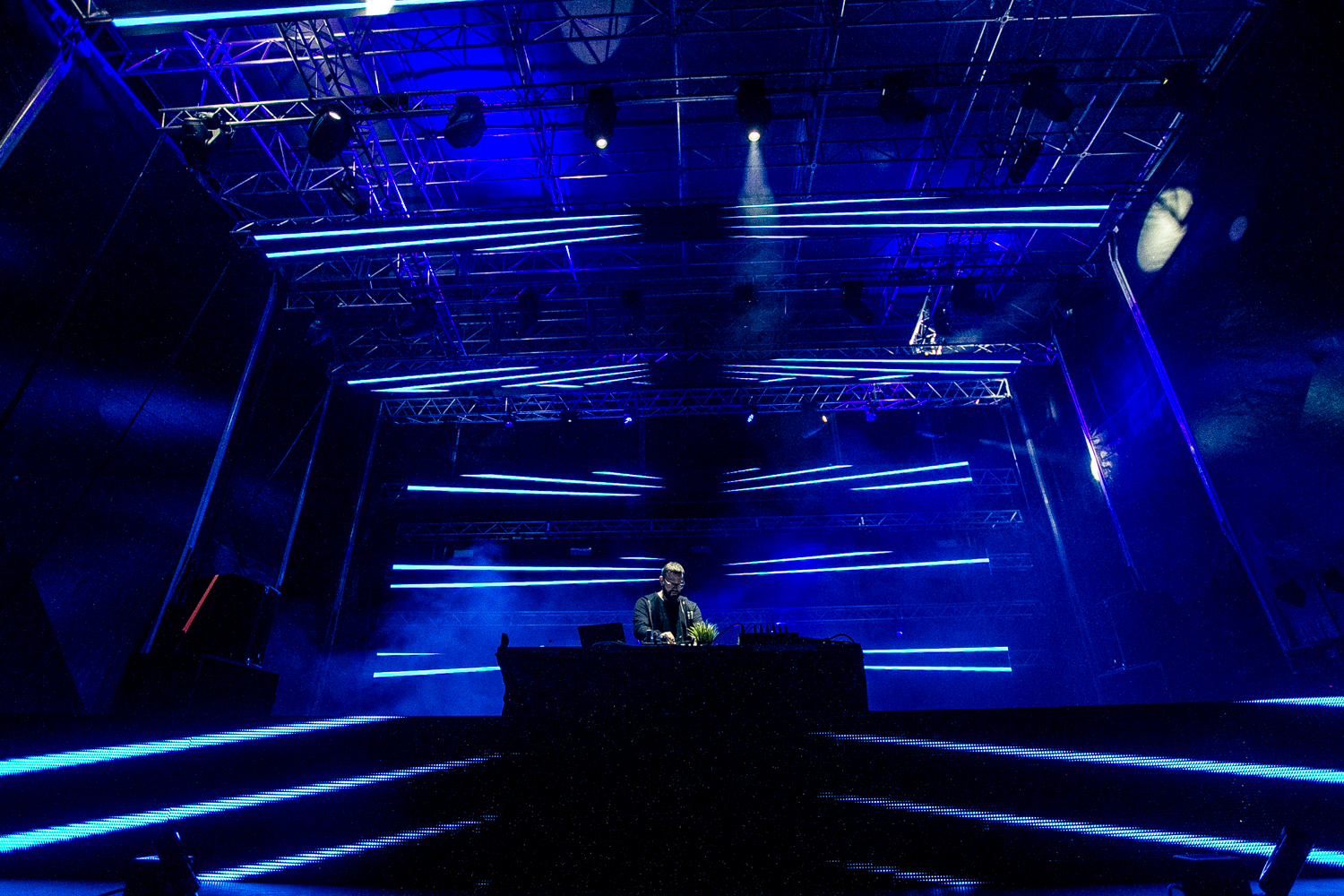A knight dead for long centuries, a wine-loving priest, three winemakers, an ancient parchment and Barbara, the funny girl. This is not another comedy flick with ghosts, but the short (cca. 1000 years long) history of the Guden Birtok in a nutshell.
Vitéz (which means something akin to Sir) Guden, the Paloznak-based knight of King Saint Ladislaus perished in the war fought against the Holy Roman Empire in 1079. Nine centuries later, however, he cropped up again in Paloznak, he triumphed and locals down on their knees in front of him. In truth, the story holds neither a ghost nor a time-travelling knight, but the history of the Guden Birtok (translates to: Guden Manor) is still worthy of the envy of many-a winery bearing a crest with sword and helmet.
Before riding off to war, the knight had signed a will, leaving all his Paloznak manor (including sheep and vineyard) to the church. Uncharacteristically of Hungarian history, the deed and the Vitéz Guden's vineyard both survived the past millennium. The previous has been safeguarded by the Veszprém Episcopal Archives, the latter by the parish priests of Paloznak. The Slikker-dűlő, however, is not the longest-standing vineyard of Hungary on paper - but only because back at the time they had not even known what paper was.
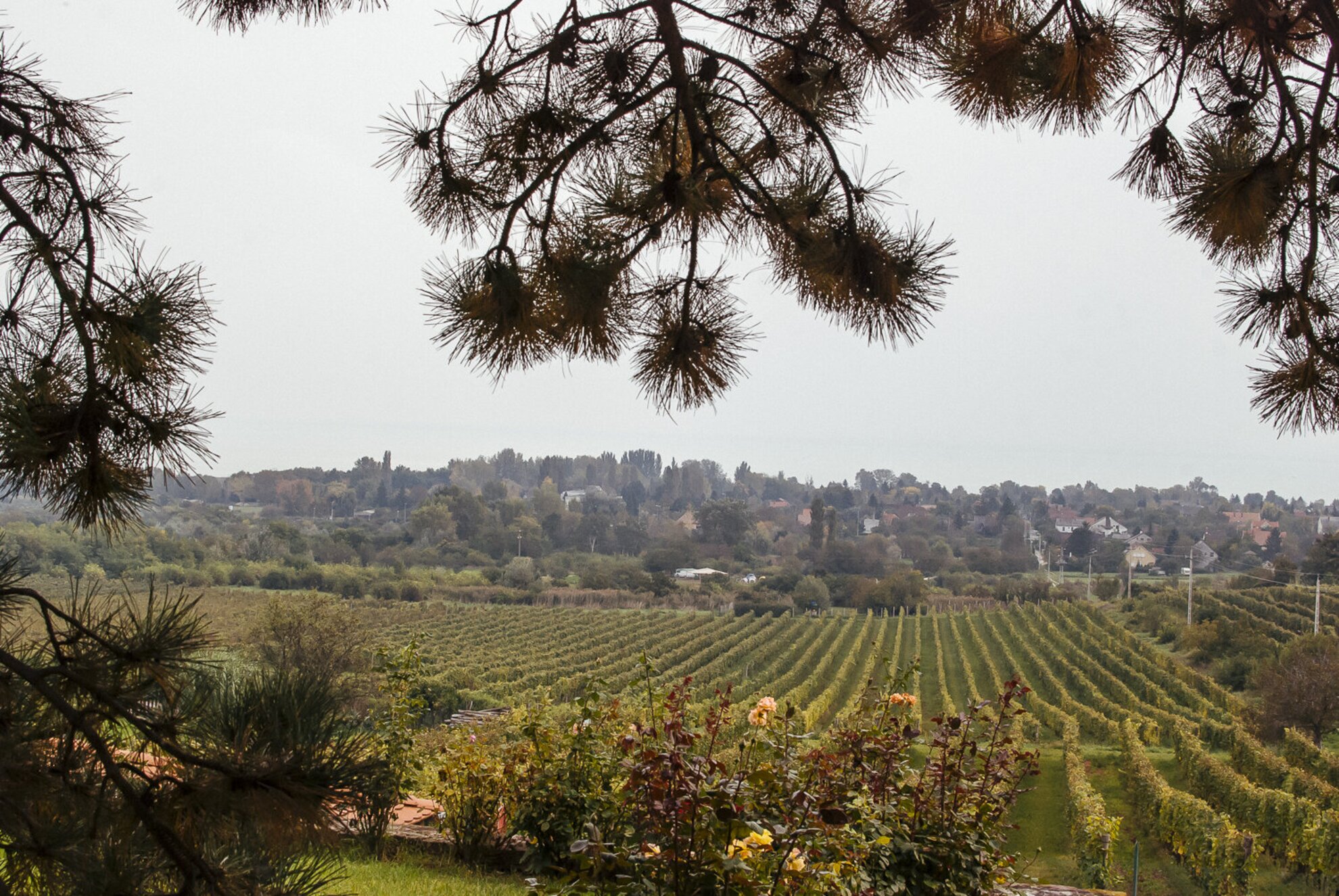
In 2011, the parish priest of Paloznak, József Ajtós thought he found the right person for the cultivation of the grapes, in the person of István Jásdi's vintner, Szabolcs Molnár. Hence the Guden Manor was born and its success justified the priest soon enough. The merits of Guden wines have not simply spread like wildfire among the wine lovers, catering managers and sommeliers of the area: the Kertmög Welschriesling 2012 was included in the selection of the illustrious wine shop chain, Bortársaság, while the wine named after the knight, Guden Vitéz emerged victorious from Csopak's wine contest in 2014 and came in third at the Welschriesling Test 2014 of the Borászportál.
At the wine contest of Csopak, the Vitéz managed to defeat the number one stronghold of Csopak's Welschriesling, István Jásdi. This is a funny twist of fate, since all three resurrectors of Guden Vitéz (Szabolcs Molnár, Péter Gősi and Zoltán Csidei; in the second photo, from left to right) play in team Jásdi, and the wines are also prepared at the Jásdi wine cellar. On top of it, they had not wanted to compete, anyway.
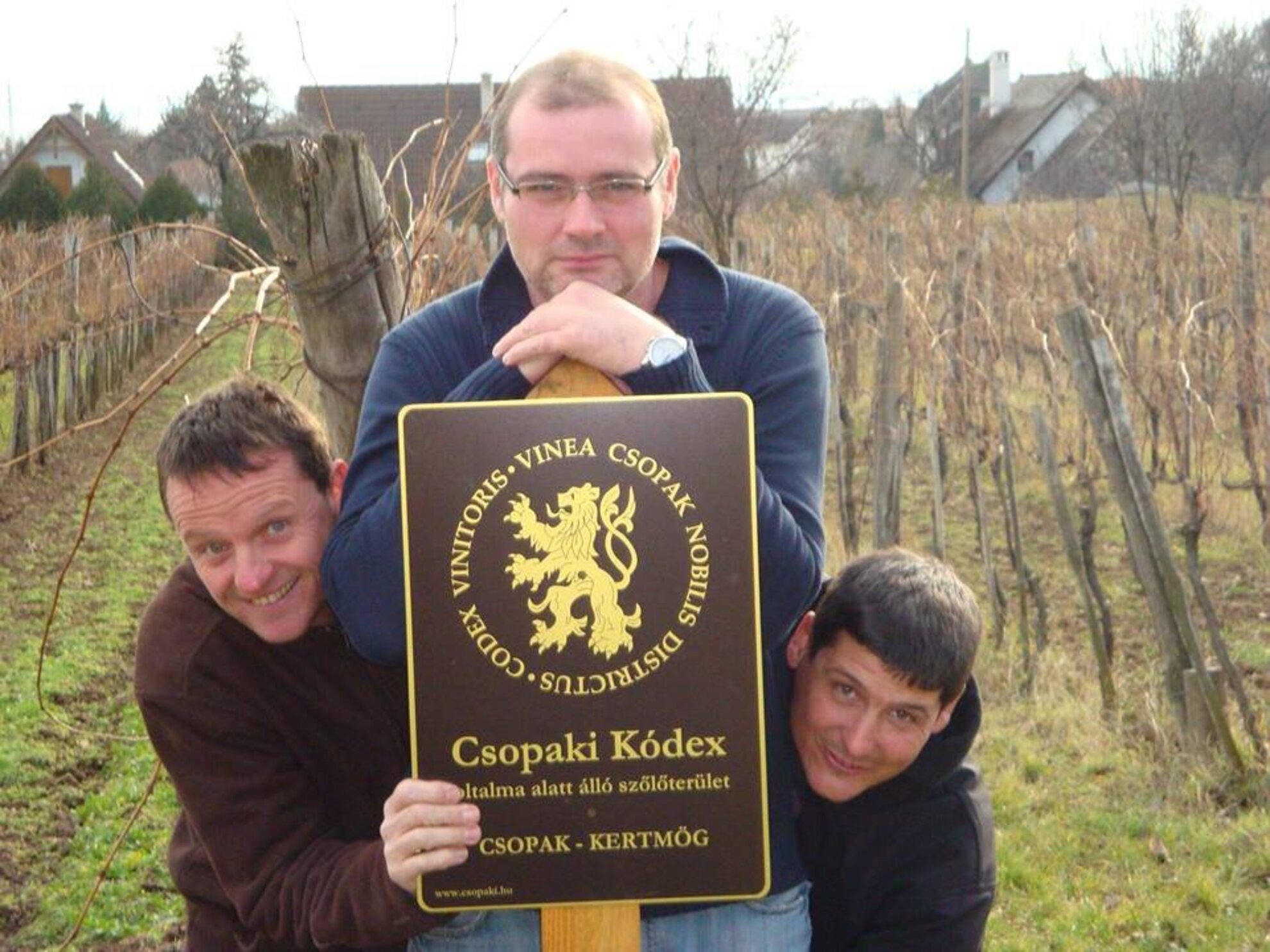
István Jásdi, however, is not jealous of the success of Guden. Even less so, as the Guden Birtok is really small and wishes to remain small, so it would never truly be competition to the Jásdi Wine Cellar.The manor that comprises of a vineyard in Paloznak, another one n Pécsely and the Kertmög vineyard in Csopak does not exceed 1 acre in size, from which it produces about 5000 bottles a year. Péter Gősi says they don't want to expand. Firstly, because the Jásdi Wine Cellar is top priority for all three of them; secondly, because this way, the Guden can remain a labour of love, where they can make wine the way they like it. Vitéz Guden has also found allies: it prepares its Rieslings in harmony with the Csopak Codex.
In addition to the Guden Vitéz from Paloznak and the Kertmög Welschriesling from Csopak, a Blaufränkisch and a Rosé are produced from the grapes in Pécsely. The latter is called Guden Barbara and "she" has her own identity on Facebook. She nurtures close relations with the church, often sharing posts by the notorious, alcohol-loving account called Father Tibi.
If out a you want to drink Guden wine, you must be swift. Only a bit more than 1000 bottles are made of each item, and they are sold out pretty soon. 85%of the bottles are seized by the popular restaurants of the area: so you must dine at the Kredenc Wine Bistro or the Baricska Csárdain Füred, or the Chianti Restaurant or the Decanter Bisztro in Veszprém to be able to sip Guden with your dinner - although some items also showed up once on the drink card of Csalogány 26 in Budapest. Customers buy out the rest directly from the producer.

